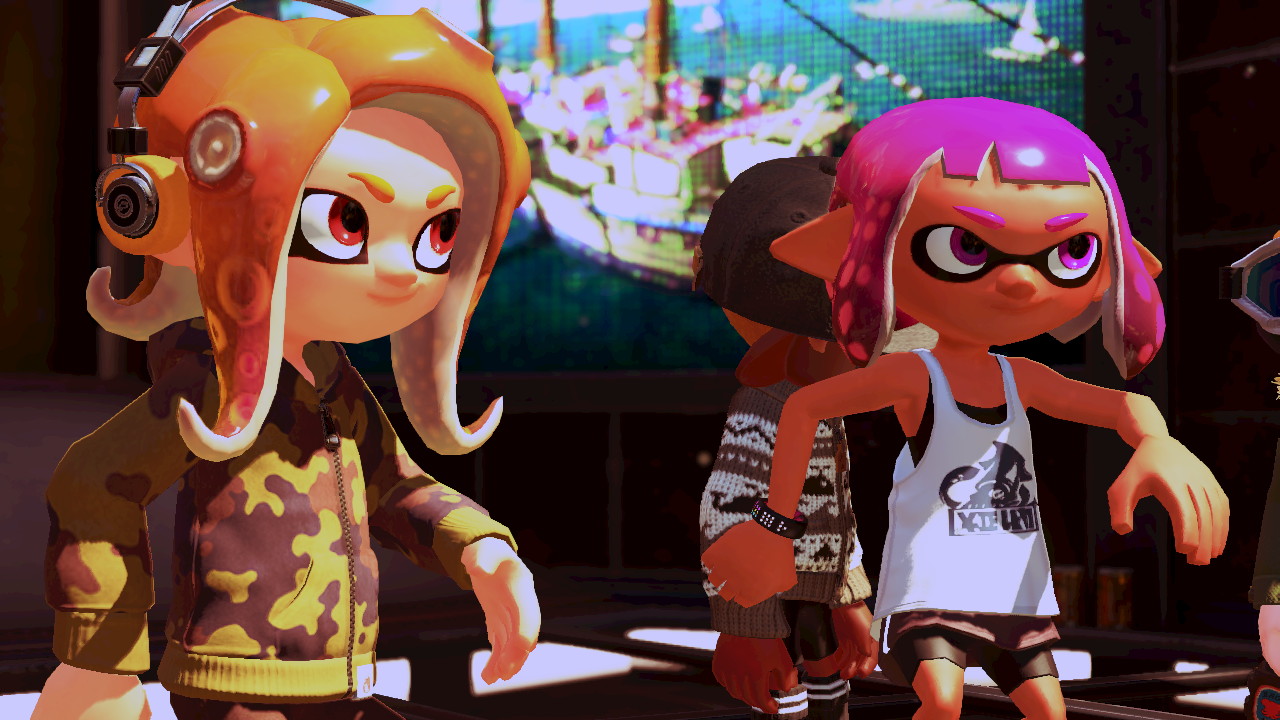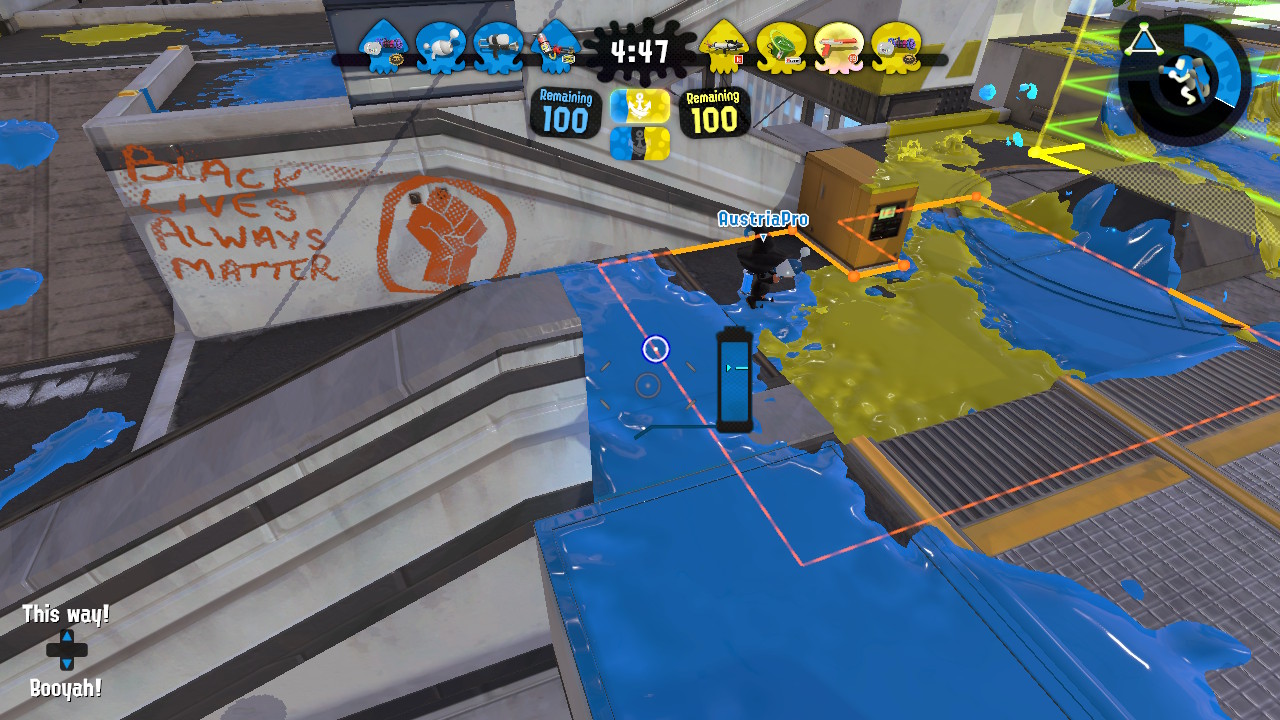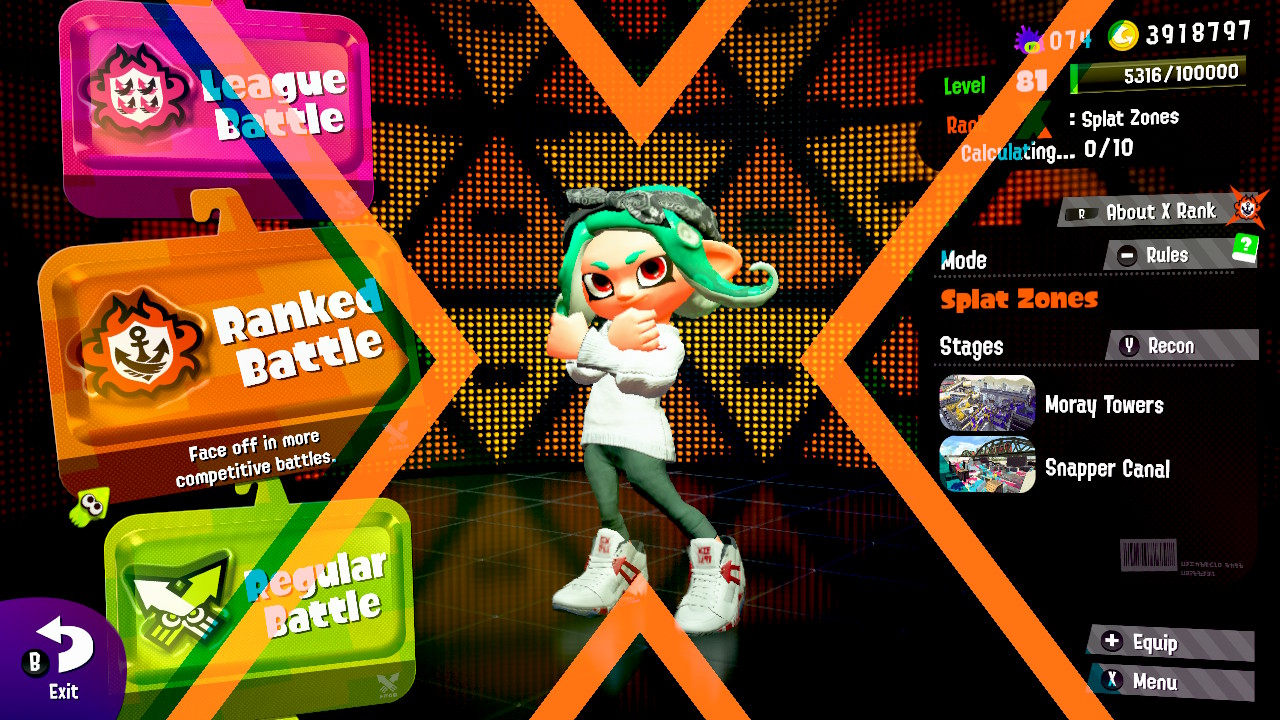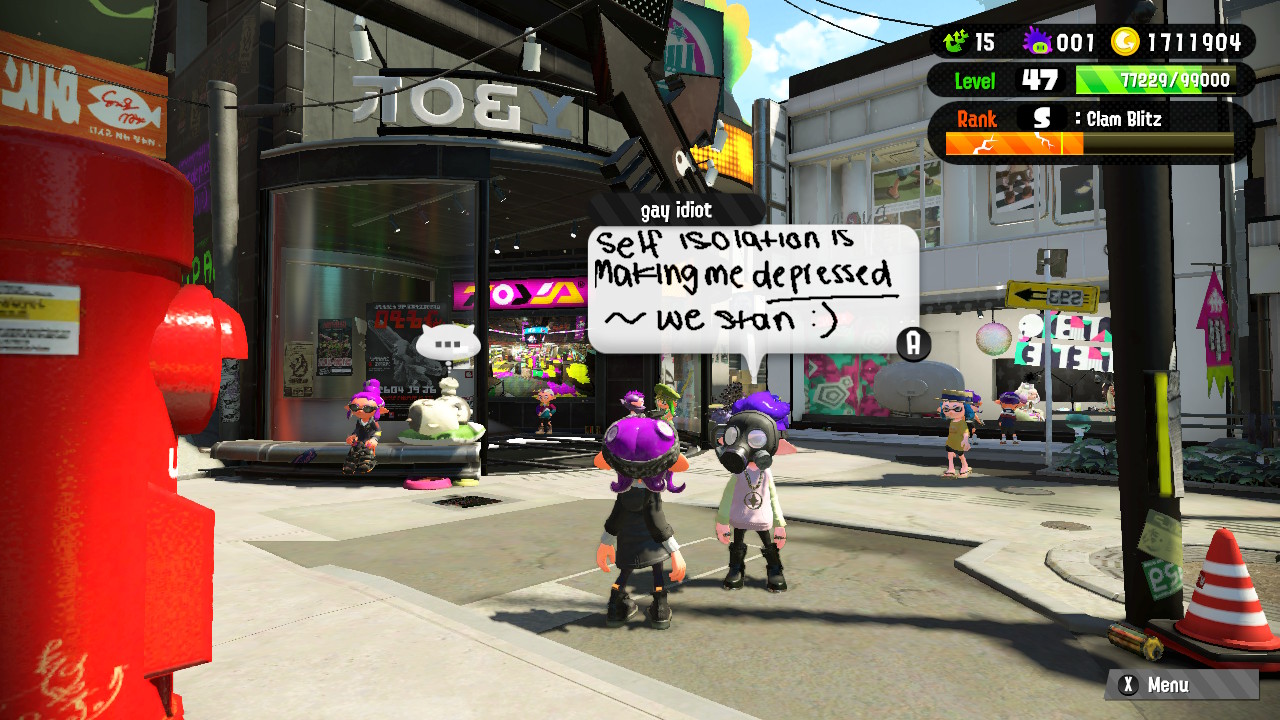Four years on, Splatoon 2 is still the freshest shooter around
Can you start playing Splatoon 2 in 2021? There's never been a better time to get in on the action

I've fallen back into the ink. With Splatoon 3 now confirmed and looking fresh as hell, I'm fully back on my squid-kid nonsense. But 2022 is a long time to wait – and if you've never dipped your toes in Nintendo's ink-splattered shooter, now might seem like a strange time to get into Splatoon. After all, Splatoon 2 is coming on four years old, and hasn't seen a major update in months. Is now really the best moment to get invested in squid paintball? This'll come as no shock if you read the headline, but yes. Yes it is.
I get the apprehension, though. When competitive games acquire a few years under their belt, they tend to be populated solely by a small, intimidating pool of die-hard pros – assuming anyone's still playing at all. Splatoon's Wii U debut might very well sit in that camp, but its Switch sequel is still absolutely thriving, sporting a vibrant community that'd fool you into thinking it came out yesterday.
Broad strokes

Let's lay some groundwork, though. Splatoon 2 isn't just one of the best shooters on Switch, it's one of the smartest shooters of the last decade – easily up there with Doom 2016 and Titanfall 2. The secret's in the ink; the paint-like goop that turns every weapon into a brush (sometimes literally) for painting up Splatoon's arena canvases.
It's hard to overstate how this one mechanic brings the game together. Here's the basics: while submerged in your own ink, you become practically invisible, able to zip around freely and climb walls. Stand in your opponent's ink, and you can barely walk. In practice, ink is effective in combining map control with movement, and turns even the most bog-standard weapons into nifty tools for painting routes.
It's smart as hell, and Splatoon's campaigns know it – trading more traditional shooter campaigns for a bizarre, almost Super Mario style hybrid of puzzling, platforming and splatting. But first-party Nintendo games rarely go on sale. Neat as they are, shelling out 50 quid for Splatoon's campaign alone (plus £17 for the excellent, if pricey Octo Expansion) is a hard ask.
Fortunately, Splatoon 2's multiplayer scene is still as vibrant as ever. Thank cod it is, too, because it's in competition where the game's paint-flinging action really shines. Casual Turf War matches are an elegant mess – two shoals of squids flowing around each other, snatching territory where they can, only emerging from the ink to take pot-shots at each other. It's extremely approachable, given it doesn't matter how many kills you rack up if you're not painting the ground you take.
Plunging the depths

"Splatoon 2 just wants everyone to have a good time, whether they're good at shooting or not"
While I ended up whiffing on tryouts to join one competitive team (the delightfully-named Cuddlefish Clan), tagging along with them for a good few months was a joy. Contrary to what I'd come to expect from competitive shooter scenes, my experience of the space was younger, queerer, and with a stronger presence of women and gender non-conforming cephalopods. The community hosts frequent tournaments and leagues across all levels, and it's easy enough to fall deep into talk of gear builds and weapon tactics – but there's always time to goof off with a casual squid prom too.
Weekly digests, tales from the communities you love, and more
See, Splatoon 2 just wants everyone to have a good time, whether they're good at shooting or not. Every round feels like a festival, with a banging soundtrack of high energy, seafood-twisted pop-punk, chiptune, and even some good old celtic rock scoring every match. Last year, I wrote on how it's not uncommon for folks to stop fighting and start vibing with each other, in what's colloquially known as a squidparty.
That playful ethos also makes the frustrations of the game's ranked modes (which I started to take a little too seriously) a little easier to deal with. I'd been looking for a competitive shooter to drown myself in since crashing out of Overwatch, and found myself quickly losing hundreds of hours climbing Splatoon 2's ladders.
In part, it's because the same ink n' swim n' spray flow of Turf War carries over effortlessly into more objective-based modes like Tower Control (Payload) and Splat Zones (King Of The Hill). But it's also because that same manic, upbeat vibe makes even the saltiest losses sting less. Short rounds mean every match cuts straight into the action, and it's hard to stay mad at a defeat when it only took 5 minutes of your time. Limited communications (you can only ping "This Way!" or "Booyah!") can be frustrating at times, but also keep the game safe from the kind of toxicity that plagues other team games.
Given its age, Splatoon 2's matchmaking community is also buoyant enough to usually guarantee a fair fight – and if you want to take it up a notch, the game's grassroots competitive scene is still thriving.
Welcome to the cephaloparade

"More than anything, Splatoon 2 is a vibe. An effortlessly slick, bite-sized team shooter."
I'm certain people more deeply invested in the community could correct me with all sorts of insider drama. But from squidparties with strangers to dipping my toes in the competitive scene, the Splatoon 2 scene exudes a relentless positivity. The Square (a main menu framed as a plaza full of shops and game hubs, akin to Destiny's Tower) is constantly lit up with posts shouting queer pride, political protest, shockingly good art and memes that never fall into a mean-spirited space. Conversations about loadouts become conversations about fashion, and if you slam the booyah button, someone will always be around to booyah back.
Last year, I burned out of Splatoon 2. Hard. The amateur team I was tagging alongside fell apart in the way online communities often do, and 600 hours of chasing X-Ranks took its toll. Even as Nintendo pulled Splatfests (weekend-long raves pitting two teams against each other) out of retirement, I found myself begrudgingly chasing numbers.
When Splatoon 3 suddenly dropped in the February 2021 Direct, I fell in love with Nintendo's squid kids all over again. I'm not the only one, too – stepping back into that derelict team server, I found it hard not to well up at sea of familiar faces who'd circled back to toss ink with each other. I'm rediscovering how fun it is to push myself by teaming up with friends, and the plaza is bursting with excitement for a new game (and, err, Among Us memes. It happens).
Because, more than anything, Splatoon 2 is a vibe. An effortlessly slick, bite-sized team shooter. An album of eclectic, experimental tunes that always go hard. A wardrobe of hot-as-hell looks that'd bankrupt me if Nintendo ever released 'em for humans. It's Marina and Pearl's playful jabs during the startup news show, and a square full of squids and octopuses hyped as hell to do the entire thing all over again come 2022.
But why wait 'til then? Come join in – the ink's still fresh.
To fine more Nintendo titles we're looking forward to in 2021 and beyond, why not check out our list of the best upcoming Switch games.


